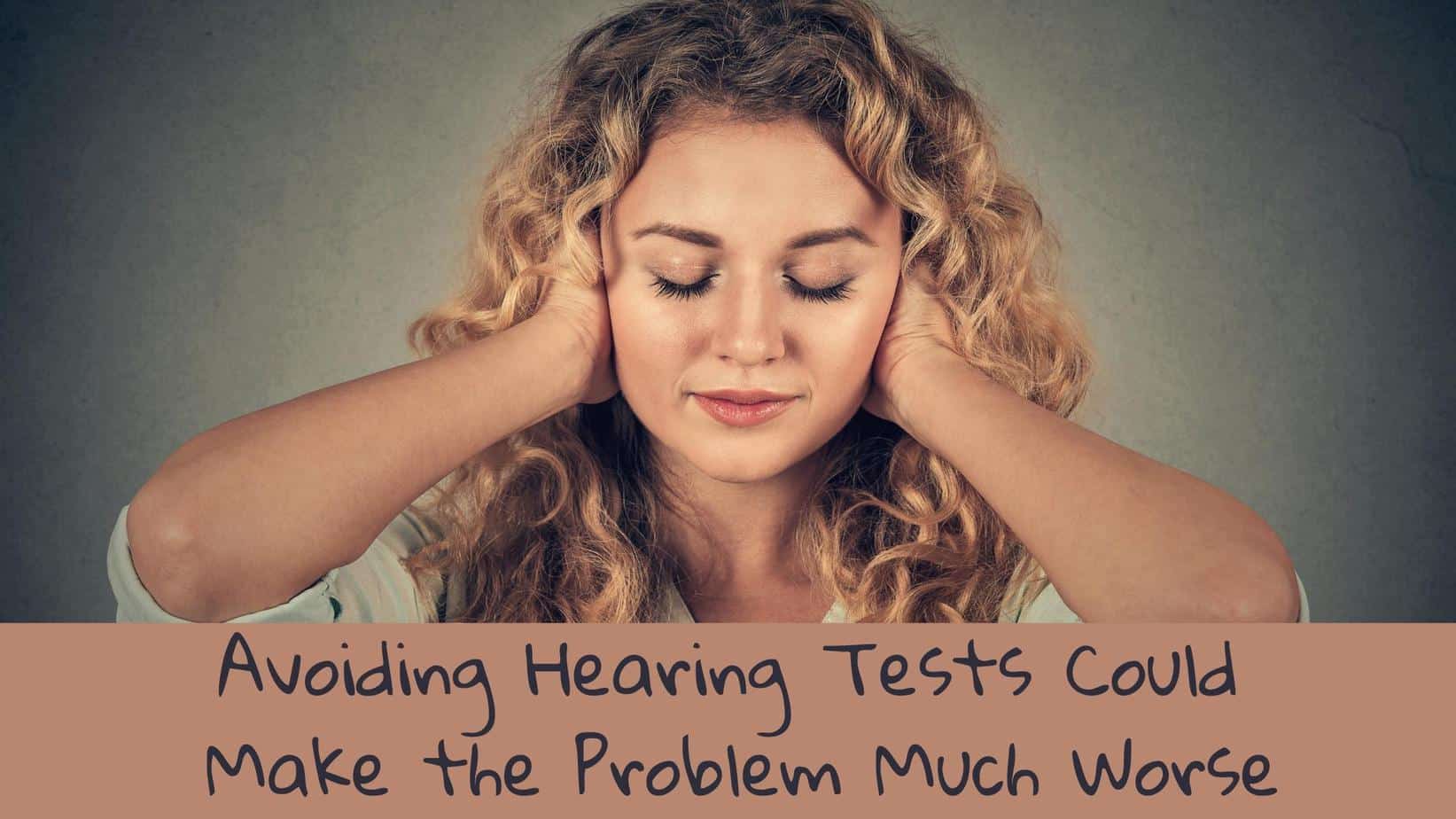
Avoiding Hearing Tests Could Make the Problem Much Worse
One of the things that makes hearing loss difficult to detect is the fact that for most people hearing loss is a gradual process. You don’t wake up one day and suddenly have hearing loss. Instead, it happens slowly over time, and the daily changes are usually too small to notice.
You may not realize that you have hearing loss for several months or more. And even when you do notice your hearing loss, you may put off getting a hearing test. Here’s how avoiding hearing tests could make the problem much worse.
Ignoring Hearing Loss
It’s common that many people ignore their hearing loss at first. Even after they realize they have hearing loss, they’re reluctant to talk about their hearing loss and avoid getting a hearing test. Instead, they ask family and friends to repeat themselves and turn up the volume on the TV and telephone.
The Stigma of Hearing Loss
Part of the reason people choose to ignore their hearing loss is the stigma that still surrounds hearing loss. Many Americans think that only seniors have hearing loss, and that admitting they have a hearing loss will make them seem old.
The truth is that hearing loss affects roughly 50 million Americans of all ages. Noise exposure, illnesses and injuries, and even genetics can all contribute to hearing loss. And even age-related hearing loss starts earlier than you might expect. Adults in their 40s or 50s may experience hearing loss, and this has nothing to do with being old.
Avoiding Hearing Tests Can Decrease Your Quality of Life
Hearing loss has some major impacts on your social life. When you have a hard time following conversations, you start spending most of the conversation straining to hear or asking family and friends to repeat themselves. Over time, you may pull back from conversations and stop attending social events because it’s too hard and too stressful. You’re worried you may mishear a question, or answer in a way that doesn’t make sense. As you lose some of the most important connections in your life your overall well-being suffers. Avoiding hearing tests and putting off treating hearing loss can decrease your quality of life.
Avoiding Hearing Tests Can Increase Your Risk of Depression
As you become more socially isolated, your overall mood decreases. You’re more likely to feel sad and lonely. You might feel frustrated that others can’t help you hear, and helpless that you can’t keep up with conversations. Avoiding treating your hearing loss can increase your risk of depression.
Avoiding Hearing Tests Could Increase Your Risk of Dementia
One compelling reason to get your hearing tested regularly is the link between untreated hearing loss and dementia. Adults ignoring their hearing loss and refusing to treat their hearing loss experience more rapid cognitive decline. They also have a far higher risk of developing dementia or Alzheimer’s disease. Adults with mild and moderate hearing loss have an increased risk of dementia, and as your hearing gets worse the risk of developing dementia increases. Avoiding a hearing test can impact your brain in some profound ways.
What are the Signs of Hearing Loss?
It’s time to stop avoiding hearing tests! If you haven’t had a hearing test in several years, book a hearing test today. Get peace of mind knowing you can hear clearly and that you have a team that’s helping you monitor your hearing health.
We recommend getting your hearing tested every 3 to 5 years, or every year if you’re over the age of 60. It’s also recommended that you get your hearing tested as soon as you notice any of the early signs of hearing loss, including:
- Asking people to repeat themselves
- Having a hard time following conversations when there is background noise
- Turning up the volume on the TV
- Missing some of the soft sounds around you, like someone whispering, or sounds coming in through the window
- Feeling very tired at the end of the day from straining to hear
- Hearing sounds that seem muffled, almost as if your ears were plugged
Do any of these sound familiar? Well, there’s a solution and it starts with you! Contact us today to schedule an appointment. Stop avoiding hearing tests and take control of your hearing health!
